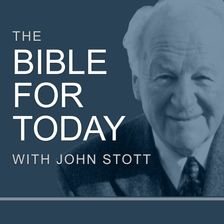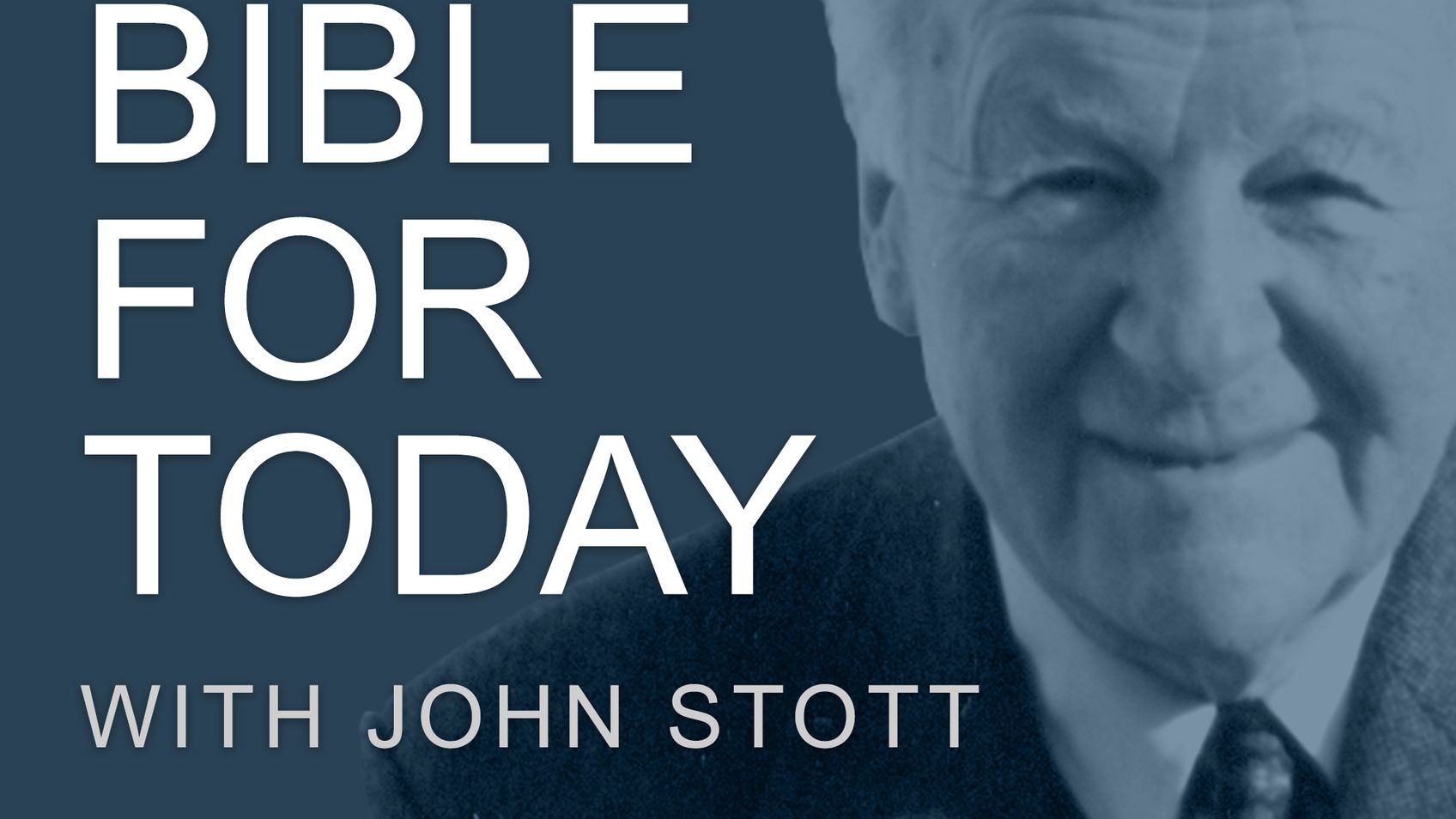Encounter With Jesus - Part 1
April 11, 2021

The Bible for Today with John StottPremier
John Stott explains that Christianity is not us being a slave to a belief or ethical system but the freedom that can only be found through faith and trust in Christ.
More From The Bible for Today with John Stott

Encounter With Jesus - Part 2
The Bible for Today with John Stott
April 18, 2021
John Stott shows us that there is a world of difference between knowing about Jesus and knowing Jesus personally, and how this can only happen by us o

The Spirit and the Bible - Part 1
The Bible for Today with John Stott
April 25, 2021
John Stott explains how the Bible came into existance and how God spoke to individual writers through the inspiration of the Holy Spirit. John Stott s

The Spirit and the Bible - Part 2
The Bible for Today with John Stott
May 2, 2021
John Stott shows how that being faithful to the Bible can often result in the church facing opposition, and why we need to be steadfast in our belief

Peace With God - Part 2
The Bible for Today with John Stott
April 3, 2021
We can long for peace between nations, in our jobs, in our homes and in our relationships. But John Stott shows us that we will never be at peace with

Peace with God - Part 1
The Bible for Today with John Stott
March 28, 2021
John Stott shows us that peace is far more than the absence of conflict or noise. He explains that true peace is different because it relies not on ex

Unto Christ - Part 2
The Bible for Today with John Stott
March 21, 2021
John Stott explains how our relationships with our colleagues and one another will only be right when we are in a right relationship with God.
More on OpenTheo

Is It Possible There’s a Being That’s Greater Than God?
#STRask
February 5, 2026
Questions about whether it’s possible there’s a being that’s greater than God and that’s outside of God’s comprehension and omniscience, and how to ex

Does Open-Mindedness Require Studying Other Religions Before Becoming a Christian?
#STRask
February 9, 2026
Questions about the claim that if Christians really want to be open-minded, they need to read and study other religions before committing to Christian

What Tools of Reasoning Help You Know What’s True, Right, and Good?
#STRask
December 4, 2025
Question about what tools of reasoning help us determine whether something is true or false, right or wrong, good or bad before bringing Scripture int

How Should I Respond to an LGBTQ Person Who Says He Feels Good About Who He Is?
#STRask
March 2, 2026
Questions about responding to an LGBTQ person who says he feels good about who he is, and whether—since we all have sin in our life we don’t consider

Why Are So Many Christians Condemning LGB People Just Because of How They Love?
#STRask
January 15, 2026
Questions about Christians condemning LGB people just because of how they love, how God can expect someone to be celibate when others are free to marr

What Are Some Good Ways to Start a Conversation About God with Family Members?
#STRask
October 30, 2025
Questions about how to start a conversation about God with non-Christian family members, how to keep from becoming emotional when discussing faith iss

Is 1 Corinthians 12:3 a Black-and-White Tool for Discernment?
#STRask
October 27, 2025
Questions about whether the claim in 1 Corinthians that “no one can say ‘Jesus is Lord’ except in the Holy Spirit” is a black-and-white tool for disce

Is It a Sin to Feel Let Down by God?
#STRask
November 6, 2025
Questions about whether it’s a sin to feel let down by God and whether it would be easier to have a personal relationship with a rock than with a God

Conservatism and Religious Freedom with John Wilsey
Life and Books and Everything
October 27, 2025
What is conservatism? And why does it go hand in hand with religious freedom? How should we think about the American experiment of ordered liberty? Ha

Keri Ingraham: School Choice and Education Reform
Knight & Rose Show
January 24, 2026
Wintery Knight and guest host Bonnie welcome Dr. Keri Ingraham to discuss school choice and education reform. They discuss the public school monopoly'

Christmas Cranks and Christmas Blessings with Justin Taylor and Collin Hansen
Life and Books and Everything
December 17, 2025
If you are looking for a podcast where three friends talk about whatever they want to talk about and ramble on about sports, books, and grievances, th

An Invitation to the 2026 Coram Deo Pastors Conference
Life and Books and Everything
February 18, 2026
"I love being a pastor, and I love pastors, which is why I hope you will consider joining us at the Coram Deo Pastors Conference in 2026." —Kevin DeYo

Lora Ries: Border Security and Immigration Policy
Knight & Rose Show
December 7, 2025
Wintery Knight and Desert Rose welcome Lora Ries to discuss border security and immigration policy. They explore Biden's policy changes, like ending R

Sense, Sensibility, and Adam Smith with Jan Van Vliet
Life and Books and Everything
February 16, 2026
This year is a special anniversary for the United States as Americans celebrate 250 years of independence. But 1776 was an important year in more ways

Can You Recommend Good Books with More In-Depth Information and Ideas?
#STRask
January 22, 2026
Questions about good books on Christian apologetics, philosophy, and theology with more in-depth information and ideas, and resources to help an intel
